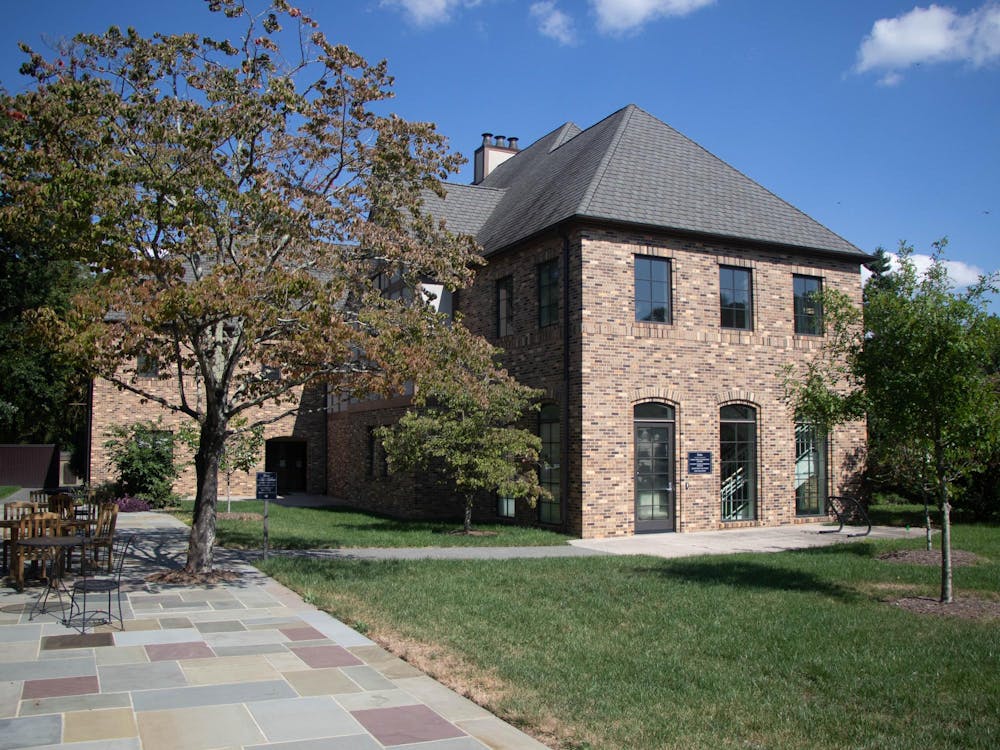Duke’s timeline for selecting merit scholarship recipients is changing — and current scholars are frustrated.
The Office of University Scholars and Fellows informed merit scholars in a January email that Duke would be moving to a “post-matriculation” model of selection. Under the new model, OUSF will notify merit scholarship finalists in May after the University has finalized enrollment for the Class of 2028.
The new timeline means that admitted students in the Class of 2028 must commit to Duke before learning whether they have been awarded a merit scholarship.
“An updated selection process will enable us to keep up with changes in the admissions and financial aid landscapes, meet our enrollment goals and fully focus on supporting our current merit scholars,” wrote Mark Dudley, director of merit scholarship programs, in an email to The Chronicle.
“In the past few years, meeting our enrollment goals has proved challenging as our yield rates for Regular Decision admits have varied considerably and unpredictably,” he added.
The changes come as Duke faces increased scrutiny for its lack of socioeconomic diversity. In September, The New York Times Magazine published an article describing Duke as falling behind other elite universities in socioeconomic diversity.
Current merit scholars fear that the new selection timeline will add to the problem.
“I think it's just shifting the whole selection process in the wrong direction,” said sophomore and University Scholar Sarah Gorbatov. “It’s preventing people from underserved communities [from choosing] Duke — which is normally a very expensive institution — over, say, their state school.”
Many of Duke’s merit scholarships, including the University Scholarship, are awarded partly on the basis of financial need.
OUSF does not believe the new selection timeline will affect whether low-income students commit to Duke, pointing to the University’s expanded financial aid programs.
“Initiatives like Duke meeting 100% of a family’s demonstrated need, our commitment to supporting incoming students from North and South Carolina, and expanded engagement with the QuestBridge program have broadened Duke’s need-based financial support offerings,” Dudley wrote.
In January, OUSF offered Q&A sessions for scholars to learn about the changes. But some attendees, including sophomore and University Scholar Nathan Maldonado, did not walk away satisfied.
“They said the decision to move forward with the post-matriculation model was made with the approval of Duke Endowment Office, the Office of Undergraduate Education, the Provost office [and in consultation with] staff, directors, peer institutions, national associations and recommendations,” Maldonado said. “Nowhere in that did I see that they contacted any scholar.”
“I can tell you right now that I would not be here if it weren't for the scholarship, if I had to wait to find out after the fact that Duke was ready to take a risk on me before I was,” he added.
Other scholars echoed Maldonado’s concerns.
“If this change was implemented maybe a year prior then I personally would not be at Duke,” sophomore and University Scholar Karen Dong said.
Since January, merit scholars and alumni have been attempting to reverse the changes through emails and letters to the administration.
“It's kind of like you're just talking to a wall,” Dong said. “The University has already made up their mind, and … nothing that we do is going to actually make them reconsider.”
OUSF argues that under the new model, the University will “be able to select merit scholars who embody the varied characteristics and experiences that comprise the Duke student body.”
“Our selection goals and process remain aligned with Duke’s unwavering commitment to identify and support an equitable student body of talented, high-achieving and deserving students,” Dudley wrote.
Get The Chronicle straight to your inbox
Sign up for our weekly newsletter. Cancel at any time.
Mia Penner is a Trinity junior and an audience engagement editor of The Chronicle's 120th volume.

